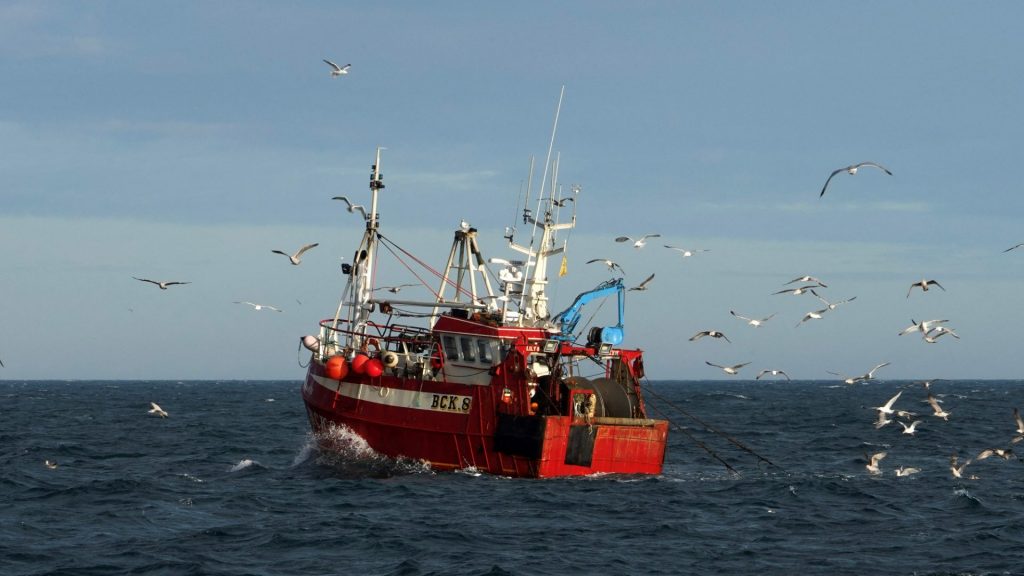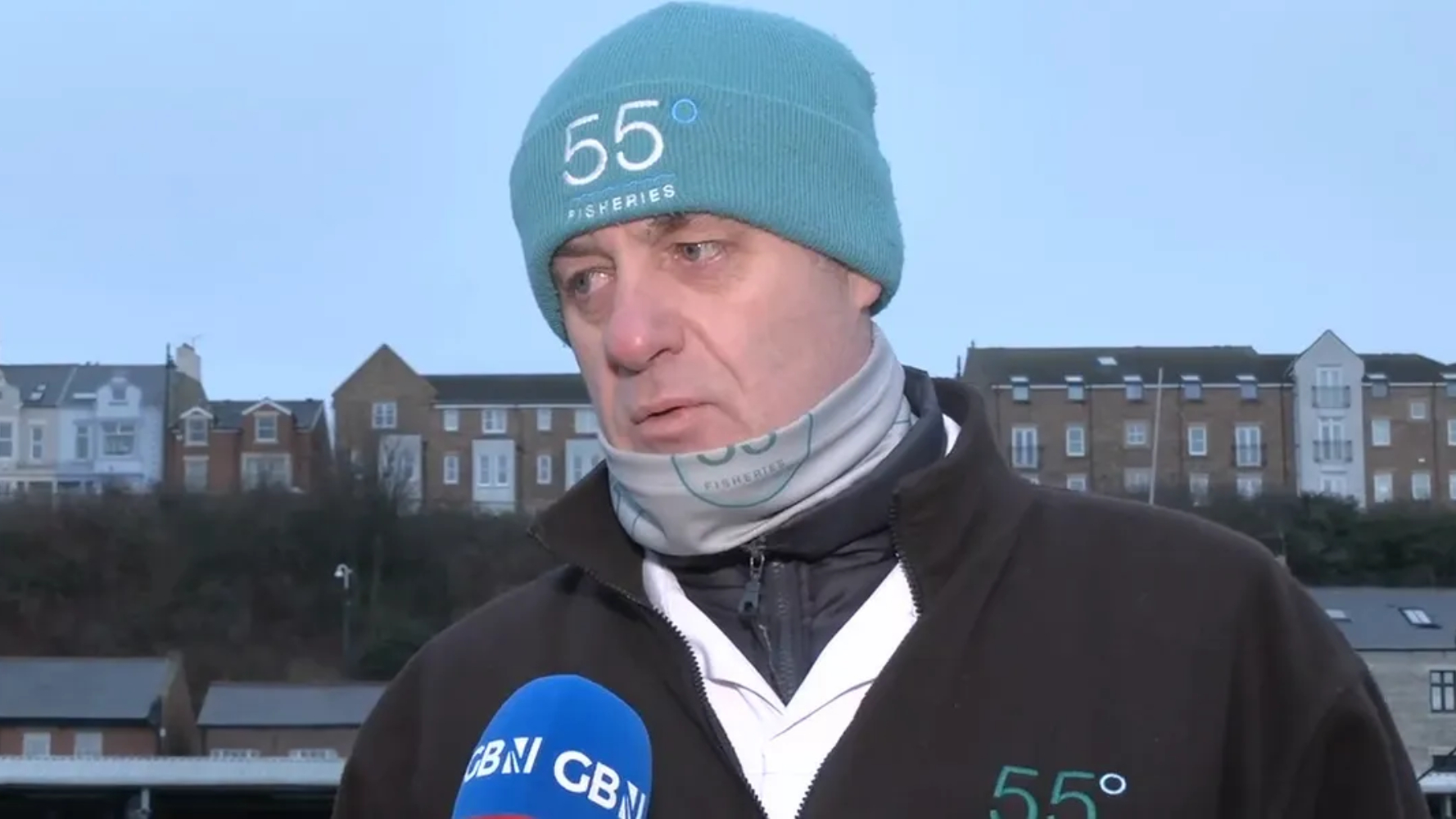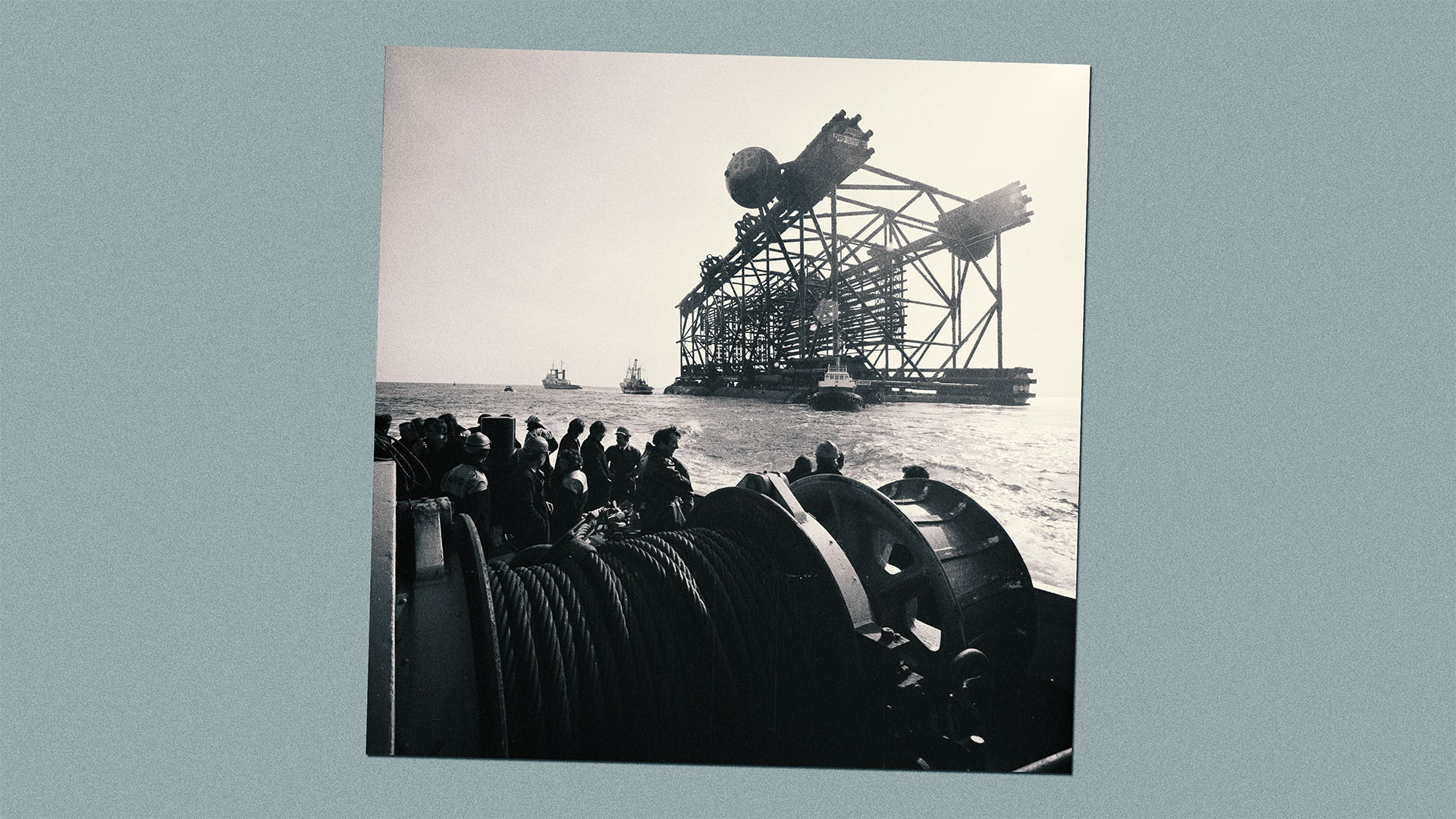Andy Dixon has become a very reluctant local celebrity. He tells me he is glad that he has nothing to do with social media, because his children keep telling him that he is all over it, that he has gone viral. This is what happens when you run a fisheries company in the “red wall” and GB News turns up on the fifth anniversary of the UK officially leaving the EU, and you tell them Brexit “has been a bit of a disaster” that “has cost us dear”.
Andy owns 55 Fisheries, a company in North Shields that processes and sells langoustines caught in the local waters off the north-east coast of England. He says he is not one to sugar-coat his words, which is what left the right wing channel’s reporter Nana Akua looking slightly shocked when she met Andy on January 31.
Akua asked questions like: “Surely Brexit has been a good thing”, “but what about we can keep our own fish and we don’t have the EU fishing in our waters?” and “you’re no longer bound by the shackles of the EU pricing structure, can’t you just charge them more money?” Dixon knocked these ideas down, calmly and patiently, in a video that has been watched over 1.2 million times.
He regrets having voted for Brexit and would vote the other way if given a second chance. He told me that he voted Leave because for years he had been wrestling with issues like net sizes, mesh sizes, landing sizes and a dozen other forms of red tape, but that “when we spoke to British officials they just hid behind Brussels. I was hoping that after Brexit they wouldn’t blame Brussels but that they could do what was best for North Shields”. He expected the Conservative government would make clearer policies, suited to local conditions.
But, as he now concedes, “at no point was I made aware of the complexity surrounding fish exports”. He is all too aware of those complexities now because as he admits, the red tape is “a hundredfold of what it used to be” and is costing him a fortune.
Andy exports the vast majority of the langoustines in which he specialises to the continent. In the UK he really only sells the smaller peeled ones as scampi, British people just won’t buy the whole shellfish, claws and all, but on the continent, they love them, especially in France, Italy and Spain. But the hoops he now has to jump through post-Brexit to reach those markets are a nightmare.
For a start, there isn’t a vet in North Shields to check each order, so at one point he had to send trucks to Glasgow to be checked and six hours later the very same trucks would pass his factory again, heading south to France. All a complete waste of time and money.

Now at least he has found a centre in Grimsby, which is in the right direction, that can check his export orders, but he has to finish processing his catch in North Shields by noon every day, because the Grimsby vet goes home at 4 o’clock. Meaning if Andy’s lorry arrives too late, his langoustines have to sit waiting until the next day to be approved, not something that aids productivity or helps keep costs down; in fact the complete opposite.
The checks cover everything from: the kind of shellfish, to weight, quality and labelling. Just one mistake can be disastrous. “We never had this before Brexit – a misspelling, the wrong Latin name, even not having a plural “s” on a label can stop a whole truck,” he says. If that wasn’t enough, the loads are also checked again when they get to France, causing more cost and more delay.
It also means that his lorries can’t take any old route to market but have to be shipped to the continent so that they can reach the French veterinary centre first. He says it’s hardly surprising then that his Danish rivals are now getting their catch to market days quicker than he can, a real problem for a product that has a shelf life of just four or five days.
Since the checks are carried out on each and every load, bigger firms also have an advantage over 55 Fisheries, as they can spread the cost over tonnes of produce. “Even for six pallets we still need a vet, and the customs checks, it does not matter the size of the deal – the expenses are the same,” he explains.
Andy’s firm has to employ someone full-time at a cost of £25k a year just to do the form-filling, but the costs just keep piling up. As he explains: “The sale price (for langoustine) is probably at an all-time high. But the boats aren’t making that money.” The costs of Brexit are eating their profits; he calculates they add between 30 and 50 pence per kilo. When the average kilo of langoustines goes for between £5 and £7, that is a big hit.
This is also not just something that affects langoustines and Andy Dixon. Every British fish exporter, whether they deal in crab and lobster or cod and haddock is having to deal with this red tape, checks and cost, as is the farming industry too.
What Andy would like to happen is exactly what he expected to happen after Brexit – lower costs, less red tape, and fewer checks. The best chance for that is for the UK to renegotiate the Trade and Cooperation Agreement and cut a special deal on food exports.
All these checks are only necessary because we decided to leave the EU totally and not keep our food and agricultural standards in step with theirs. We could probably do a deal to adhere to those standards, rules and regulations and in return the checks on our exports and EU imports would stop. Bad news for vets and pen-pushers, a godsend for Andy Dixon and thousands like him.
Since renegotiating a better deal on food and agricultural standards is one of the things that the government’s “reset” of relations with the EU is aiming for, there is a light at the end of the tunnel. The Brexit ultras will call it treason and wail that we have no control over the rules. For those like Andy Dixon who deal in reality rather than dogma, it will be a price well worth paying.




